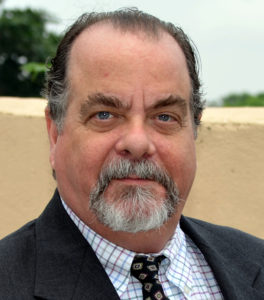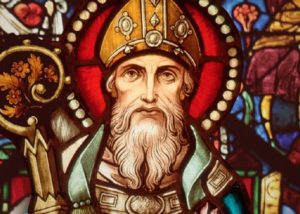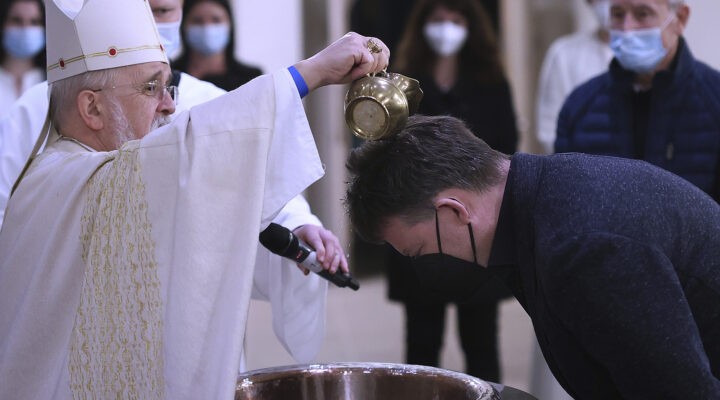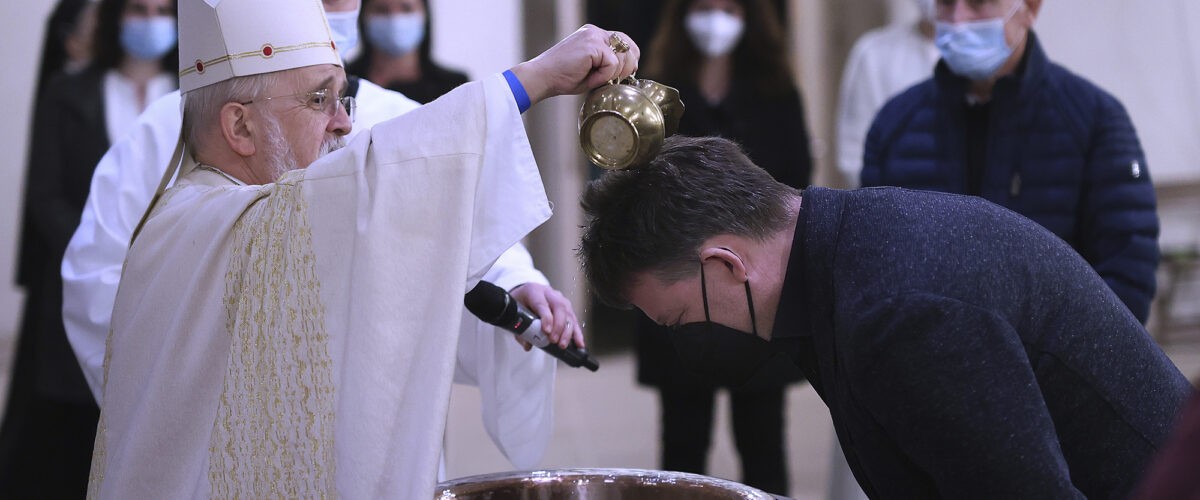On Feb. 15, reports of an Arizona Roman Catholic priest’s assumed liturgical blunder — using “we” rather than “I” in baptisms over a decade — flooded news feeds across a wide spectrum. I was not surprised that Religion News Service ran an article. That the New York Times and the Daily Mail puffed the story was curious. Neither outlet has a strong record of reporting news of religion unless there is a controversy. I found the National Public Radio coverage the most transparent.
I come to the issue as an ecumenical Baptist, aware of the murkiness of what Baptists call an ordinance and other Christian communities call a sacrament.

Richard Wilson
My social media feeds were flooded with commentaries that assumed various postures over the pronouns. I tried to take them all in stride. I know that contexts matter and should be explored.
Some comments railed against rigid doctrine, noting that in the 20th century Catholic liturgy was modified in the wake of the Second Vatican Council in the late 1960s.
Other comments dug into a non-Catholic ethos that provided a contrast to how the Catholic Church might respond. One of my Facebook friends posted a contrived whimsical note from the Curia: “It is worse than we thought. You are Baptists.” I chortled.
Then there were some posts that, I think, honored the freedom of conscience, a key value of classic Baptist theology. Simply stated: “People should seek an approved baptism in their tradition.”
Baptism has been a critical issue for Baptists and Catholics.
Since Vatican II, converts to Catholicism can be affirmed without baptism.
In Baptist life (in some communities), church membership has been distinguished from baptism. Increasingly, Baptist churches have embraced those who join “by statement” of their previous baptism, including what once was called “alien baptism,” meaning baptisms in various traditions.
As something of a working history of Christian theology, there are a few horizontal issues to consider:
Augustine, Bishop of Hippo in North Africa (396 to 430) had more influence than any Christian writer with the exception of those responsible for the New Testament. His life unfolded in the midst of turmoil in the Roman Empire. In matters of history, theological confessions and spirituality, the African Saint left his mark on the history of the church.
Most notably, his assessment of the Donatist Controversy — fomented by a group of purist-minded prelates in Carthage, North Africa — demanded that the efficacy of the practice of priests in matters of baptism, ordination and marriage were founded upon the moral integrity of those priests.

Stained glass depiction of St. Augustine
Augustine flatly denied the premise, noting that even priests and bishops were morally flawed. He asserted that the efficacy of the sacraments performed were in no way dependent upon the moral character of the one who performed the rites.
Priests and bishops, Augustine claimed, could not and should not validate the rituals they performed on the basis of their moral character. Sacraments performed and received in faith are self-validating. Why? They are generated by grace.
Nearly a millennium later, Saint Thomas Aquinas affirmed Augustine’s conclusions. In a carefully shaped argument, Aquinas asserted that the sacraments are necessary, but their necessity is neither affirmed nor negated by the one who administers the sacrament.
Fast forward to the ecclesial earthquake that was Vatican II in the mid- to late-1960s.
Perhaps the most significant development of the Council was the acceptance of vernacular liturgies. The so-called Latin Mass was set aside for non-Latin masses across the globe. Overnight, Catholics around the world were given the opportunity to hear the mass in their native languages.
Finally, Vatican II broadened the horizons of the church. Adult converts to Catholicism were not required to be rebaptized. The church accepts their confessions of faith and welcomes the converts — without prejudice — into the local and global community.
As an aside, I note that in recent decades many Baptists have abandoned the phrase “alien baptism,” a negative assessment of baptismal practices other than believer’s baptism by immersion.
“My hope is that this conversation will increase our understandings of the church and church at work.”
My hope is that this conversation will increase our understandings of the church and church at work.
A flaw of orthodoxy of any stripe is the exclusive emphasis on words at the expense of actions. Of course, an exclusive emphasis on action/praxis is equally flawed.
I read Matthew’s so-called Sermon on the Mount as a necessary chiding of those who demand orthodoxy of words for the sake of words (the scribes) and those who demand orthopraxy (the Pharisees).
Even the Church of Rome embraces the nuanced praxis of the cluster of sacraments of initiation, which include baptism, first Communion, and confirmation. Indeed, all seven of the sacraments finally enumerated in the high Medieval period emphasize the body of Christ, the church militant (visible) and the church triumphant.
Finally, a personal story.
In the summer of 1995, I was baptized in the Roman Catholic Church at the end of a nine-week course of intensive Spanish at the Mexican-American Cultural Center in San Antonio, Texas. It was not an orthodox service, but … .
For nine weeks I was one of two non-Catholics in the class. I attended Mass daily, learned the rhythms of the Mass in Spanish, including many songs. As my Spanish improved, the parish priest, Father Vela (yes, Spanish for candle) invited me to deliver the homily. I did.
“To my utter surprise (and the surprise of many others) Father Vela handed me the Gospels and asked me to read the Gospel text of the day.”
To my utter surprise (and the surprise of many others) Father Vela handed me the Gospels and asked me to read the Gospel text of the day. I did. I imagine that Father Vela was reprimanded by the archbishop because only priests are supposed to handle the Gospels and read from them in the Mass.
The title of my homily was “Las Lagrimas que Nutren” (“The tears that nurture”).
Never once in the nine weeks did I receive the host in the Mass. My orientation materials made it clear that non-Catholics were welcome at the Mass and could receive a blessing during the Eucharist. We were not, however, welcome to receive the host.
On the last day of the experience, I attended the Mass and, once again, stood for the blessing, with my hands behind my back, from Father Vela during the Eucharist.
After the service, one of my teachers, Señor Pena, sought me out. He had been weeping. His face was wet with his tears.
His baptismal homily was brief: “You are part of our community, yet you were denied the Eucharist!”
He wiped the tears off his face and applied them to my forehead in the sign of the Cross.
His tears nurtured me. I was baptized in his tears.
Richard Francis Wilson is the Columbus Roberts professor of theology in the Columbus Roberts Department of Religion and former chair of the department in Mercer University’s College of Liberal Arts and Sciences. He was president of the Liberia Baptist Theological Seminary near Monrovia from 2014 to 2016.
Related articles:
Baptism is a call to social action, not a genteel ceremony, Braxton says
‘Doesn’t anyone want to be baptized anymore?’ The ‘tangibilifying’ grace of baptism | Opinion by Bill Leonard
Baptism meanings and methods spark debate among some Baptists


